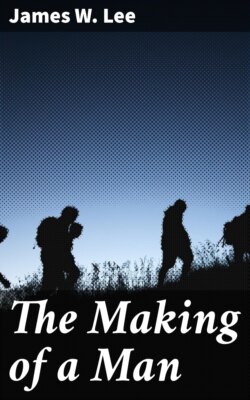Читать книгу The Making of a Man - James W. Lee - Страница 11
На сайте Литреса книга снята с продажи.
CHAPTER I.
THE PROVISION FOR THE PHYSICAL NATURE OF MAN.
ОглавлениеTable of Contents
In the form of bread, using the term in a wide generic sense, matter passes into the service of man on the plane of human life. By regular steps it is lifted and refined and adjusted to correspondence with human need and comfort. In its raw and individual state, it is controlled by physical force. From this crude condition it is carried by chemical force to the order of the mineral kingdom. From this plane, it passes up through the agency of vital force to the vegetable kingdom. Through the power of vital force of a higher kind, it is advanced to the animal kingdom. Here it is ready for man, and yields itself to the uses of his life. From the time that vital force enters the realm of nature, a process of assimilation begins. The plant assimilates the mineral, the animal assimilates the plant, and man assimilates the animal. Through regular gradations, matter passes up from the bottom of nature into the service of man, who stands at the top. With each move upward it gets associated with force of a higher kind. With each advance its range gets wider and its movements freer. In the form of bread, it is sufficiently refined and sublimated to be appropriated and utilized for food, for shelter, for raiment, by the immortal spirit of man. The necessity for food, for clothing, for shelter, creates commerce, and commerce accomplishes results far more important than the production and distribution of the temporal necessities of human life. It brings men together; it establishes relations. It is the wonderful institution which, early in the history of the race, began as a loom to catch up the separate threads of individual life, to weave them into that marvelous fabric called humanity. Ends of an infinitely higher order are realized by the production and exchange of the elements of trade, than the satisfying of hunger with bread, or the furnishing man with clothing and shelter. The higher ends are the essential and ordained ends. That we may understand what an important part the necessity for food has played in the progress of man, it will be well to consider the significance of the relations it first helped to establish.
